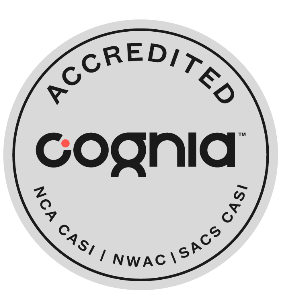POLICY NUMBER:
600.16
ADOPTED:
4.21.1992
Board Policy
- The Board holds that one of the fundamental purposes of education is to teach youth how to think and take a position when confronted with alternative choices. Therefore, schools have an obligation to allow students a forum for examination and discussion of controversial issues which arise in connection with the instructional program. An issue shall be considered controversial if it is socially unresolved, generates highly divergent opinions, and may be considered an unsuitable curriculum topic by some members of the community. The Board recognizes a need for regulations to govern the examination and discussion of instructional material which is currently or potentially controversial.
- The Board authorizes the Superintendent and District Administration to establish administrative regulations consistent with this policy.
ADMINISTRATIVE REGULATION:
600.16-1
APPROVED:
4.21.1992
Study of Controversial Issues - 600.16-1
Controversial issues are not intended to be part of the regular school curriculum. If and when controversial issues arise out of the normal student/teacher interaction and discussion, employees shall adhere to the following regulations:
- Controversial issues may be introduced into the curriculum for one or more of the following expected student outcomes.
- Learning to analyze current political, economic and social problems of major concern.
- Learning to differentiate fact from opinion and/or propaganda.
- Learning to identify and analyze prejudice.
- Learning to form and express personal opinions in a courteous, respectful manner without jeopardizing peer, teacher, or school relationships.
- Learning respect for the concept of majority and minority opinion and the resulting impact on the societal process.
- Learning to draw intelligent conclusions from facts which may serve as a basis for forming personal opinion.
- The proposed lesson is appropriate to the grade level and subject of the class where it is to be presented.
- Before controversial issues may be introduced into the curriculum, the following criteria must be met:
- A detailed outline of both the curriculum unit and proposed lesson must be prepared by the teacher and submitted to the principal. If a guest speaker is to be invited, the teacher shall include a completed Guest Speaker Request Form.
- The principal shall review the curriculum unit, lesson outline, and Guest Speaker Request Form and determine if the criteria outlined under Item A will be met. The principal shall then approve or deny the request and notify the teacher of the decision in writing within five (5) working days.
- If the request is denied, the teacher may appeal the principal’s decision to the School Community Council. An appeal to the School Community Council shall be conducted as follows:
- Within a reasonable time frame (recommended: 10 days), a quorum of the official designated membership of the School Community Council shall convene to hear the appeal.
- The School Community Council shall hear testimony from the principal, teacher, and other individuals as deemed necessary.
- Following testimony, the School Community Council shall deliberate and reach a decision. Neither the principal nor the teacher shall be present during the deliberation.
- The School Community Council shall issue a decision in writing to both the principal and the teacher.
- When controversial material has been approved for introduction into the curriculum, the instructor is responsible to:
- Be well-informed on the controversial issue to be introduced.
- Prepare lesson plans which include clear, concise goals for the study unit.
- Notify parents of the proposed study unit.
- Give students the option, without penalty, of attending an alternate activity of similar value during the presentation of the controversial material.
- See that the controversial issue is studied in an objective and scholarly manner that includes the presentation of differing viewpoints.
- Maintain an impartial, unprejudiced role throughout the presentation.
- Emphasize the academic aspect of the issue and refrain from advocating a position.
- Guest speakers on controversial issues
- Guest speakers shall agree in advance to abide by the guidelines outlined in this policy, and to refrain from discussions which go beyond the course-relevant content.
- The teacher shall be responsible to monitor the guest presentation in its entirety and halt the presentation if course content guidelines are violated.
- If the guest speaker is presenting only one point of view on a many-sided issue, the teacher shall be responsible to see that students also receive information on differing viewpoints.
Exhibits
None
References
None
Forms
None
Document History
Adopted – 4.21.1992.
This online presentation is an electronic representation of the Canyons School District’s currently adopted policy manual. It does not reflect updating activities in progress. The official, authoritative manual is available for inspection in the office of the Superintendent located at 9361 South 300 East Sandy, UT 84070.

